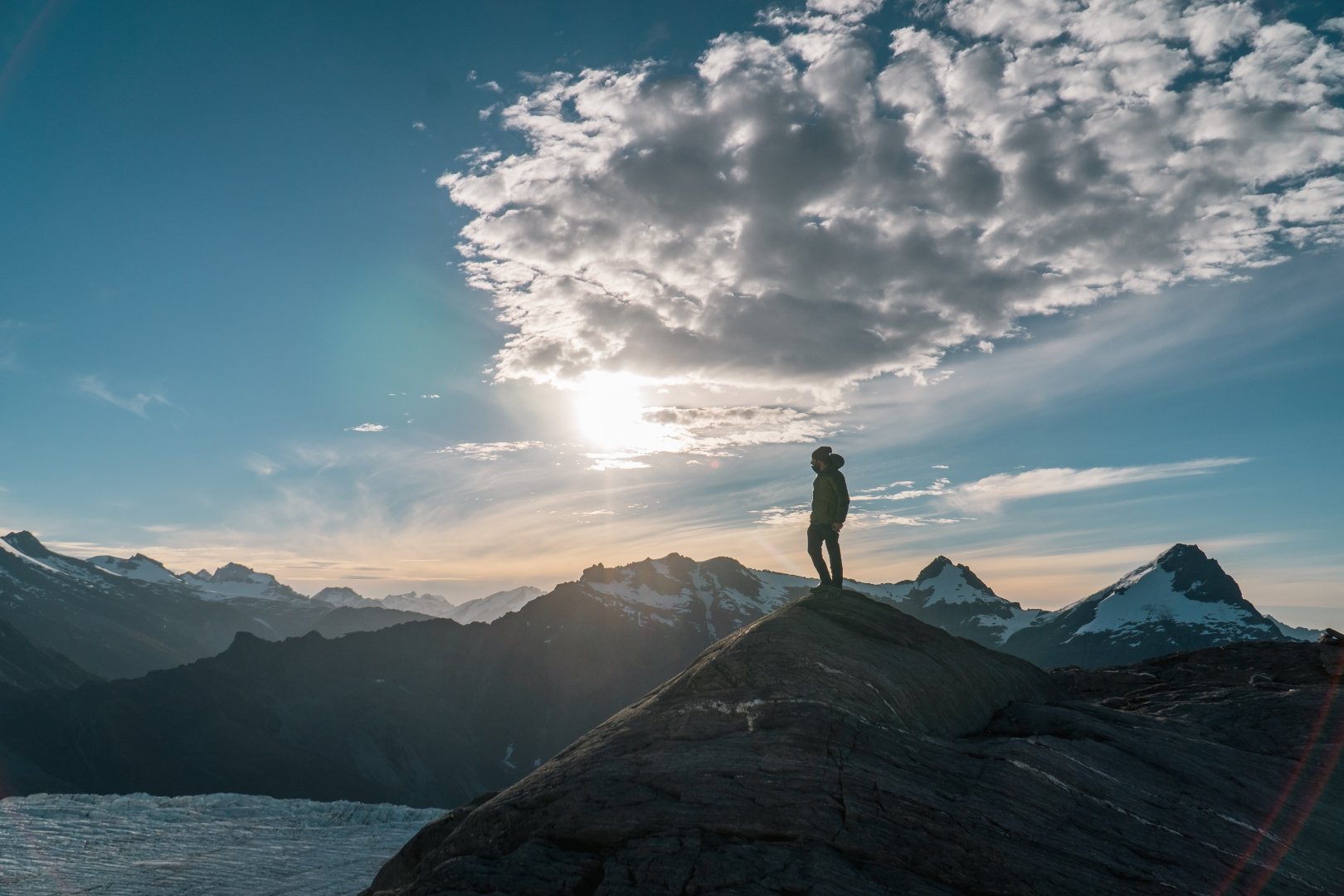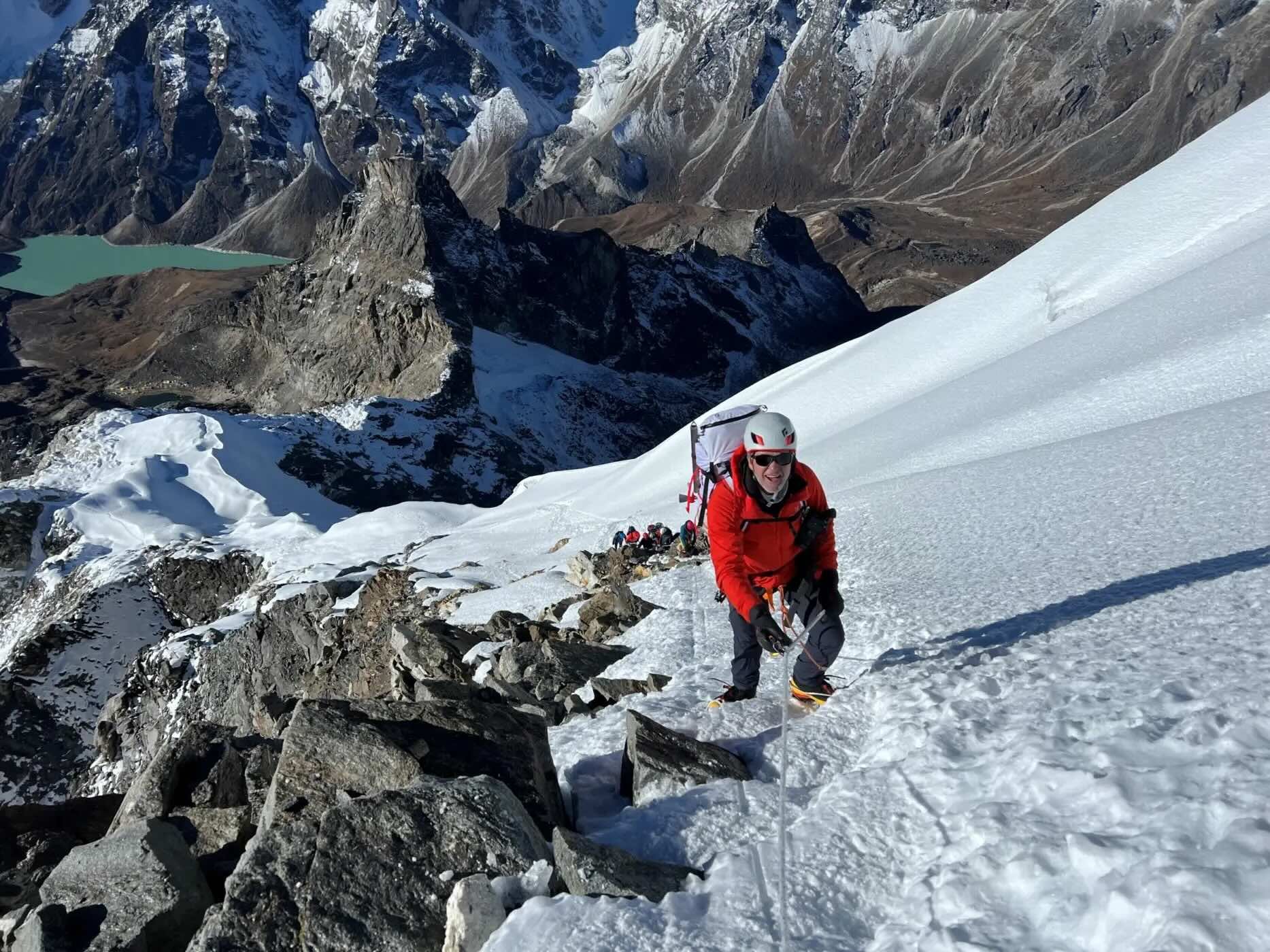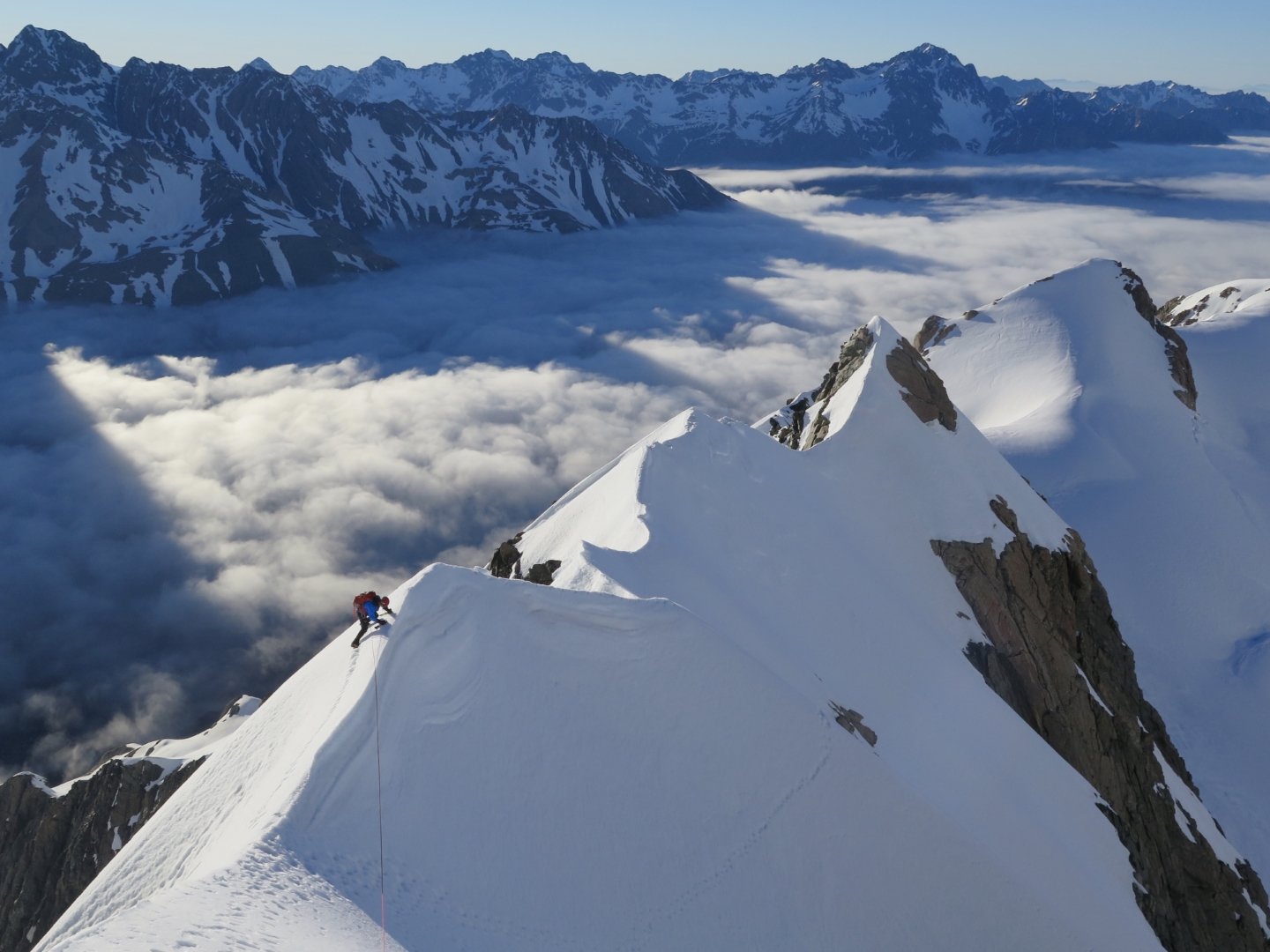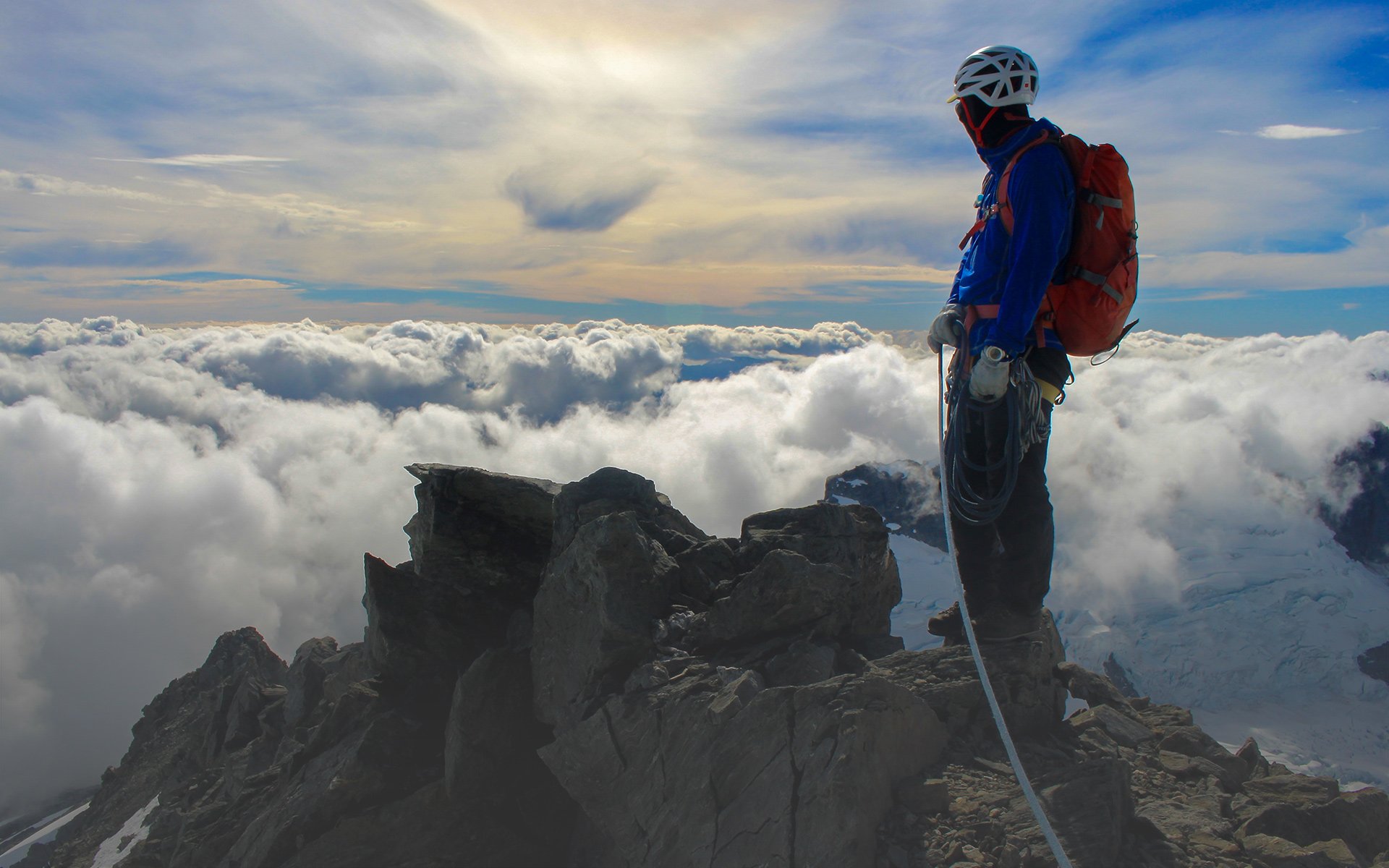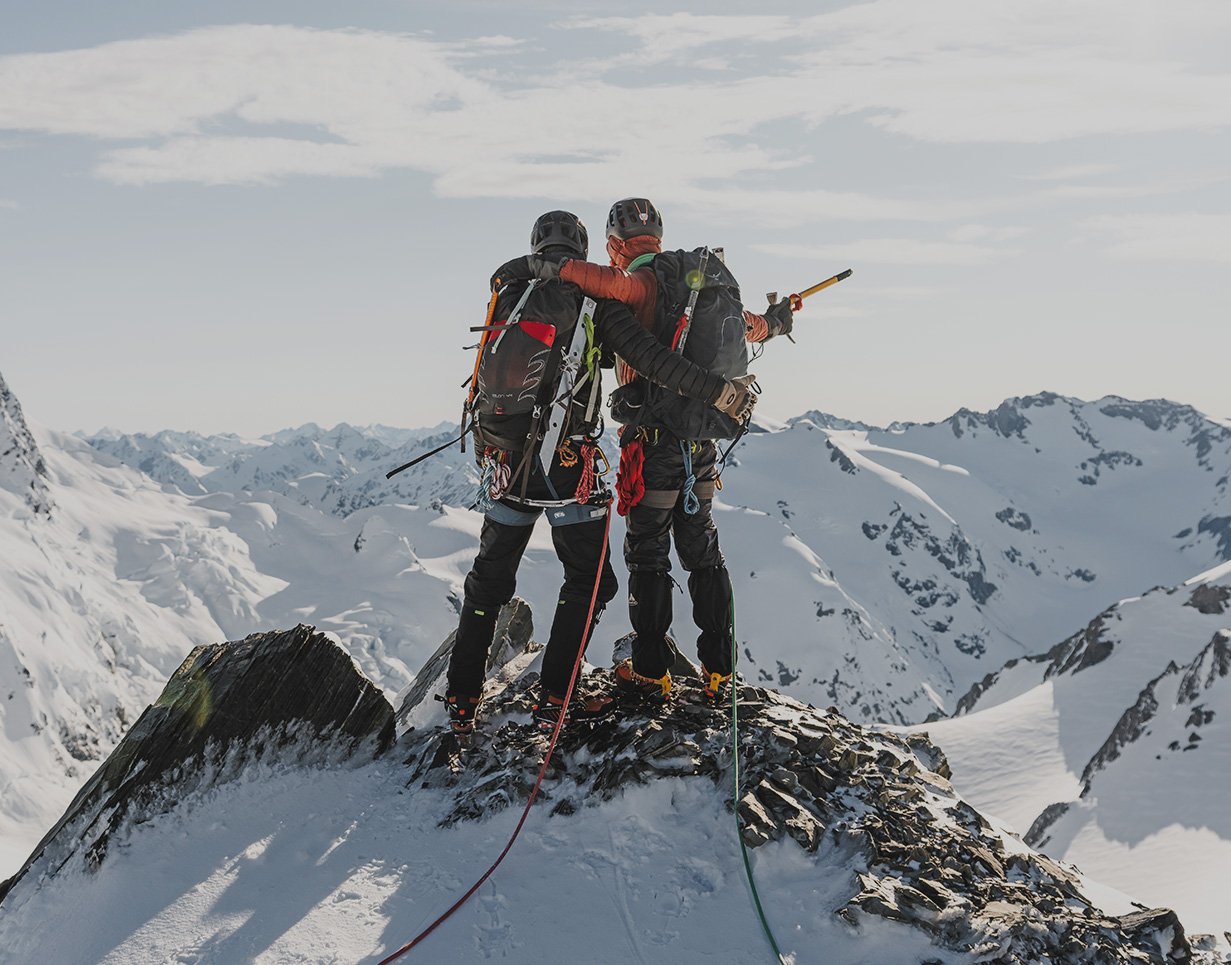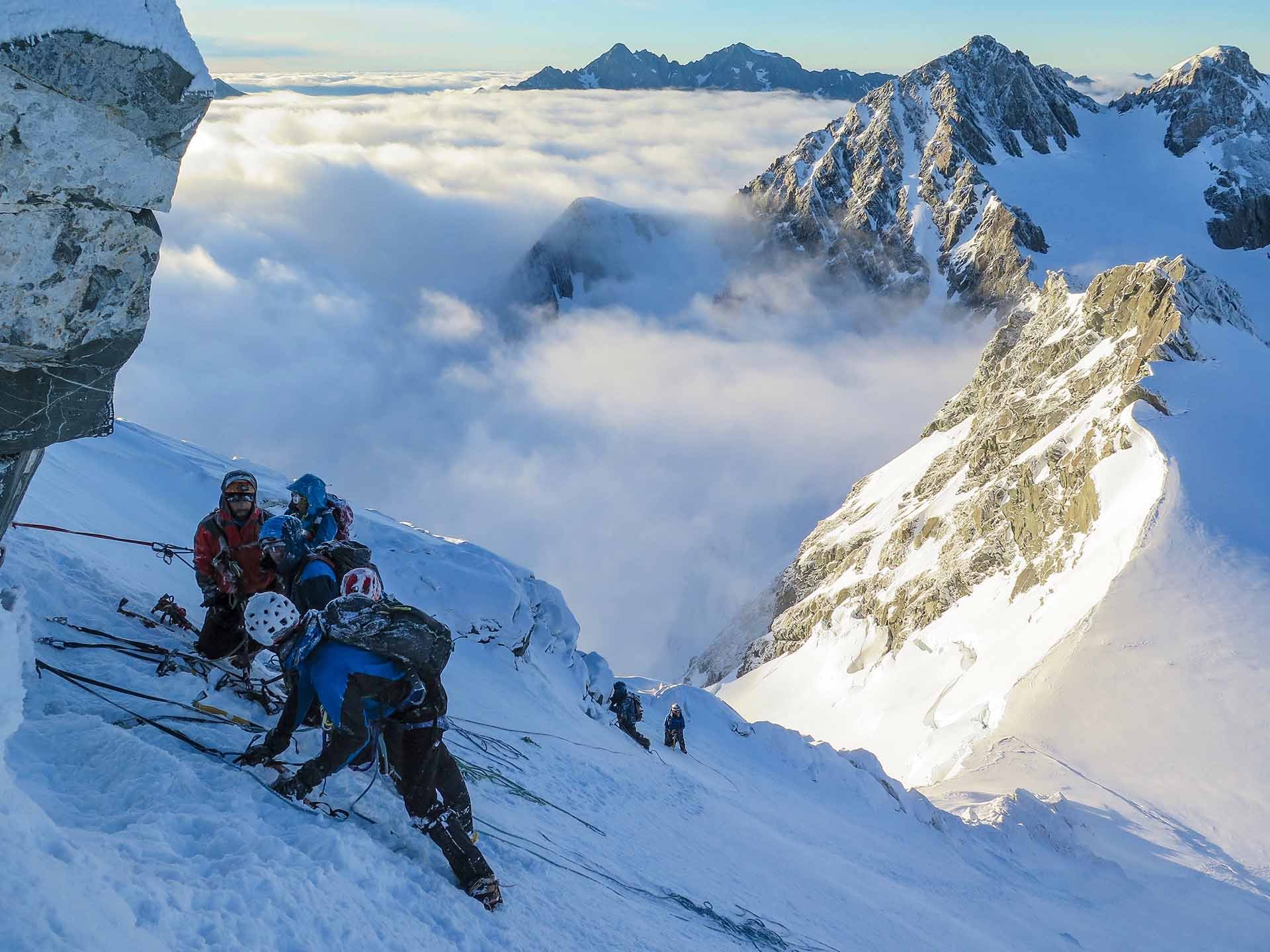
Alpine Skills Course (ASC)
Difficulty
Duration
7 days
Season
October to April
Gearlist
PRICE $4,695 NZD
The Alpine Skills Course (ASC) will introduce you to the world of mountaineering on snow and ice. This is a 7-day introductory to intermediate-level alpine climbing course. You will develop the skills and confidence to safely undertake independent climbing trips in serious, glaciated alpine terrain - coached by NZ's guiding professionals.
The ASC’s focus is on skill development and building your core competencies. You will learn the safest, modern techniques for climbing on snow, ice, and alpine rock.
All training is by our professional IFMGA/NZMGA guides at a fantastic remote glaciated venue in the Aoraki Mount Cook alpine region. We fly in and out of the mountains to maximise your productive climbing and training time.
Learnings & Outcomes
The Alpine Skills Course is ideal:
For rock climbers looking to transition into the alpine, or for people training for long-term mountaineering objectives.
As a follow-up from our introductory Mountain Experience Course (MEC)
For trampers/hikers with basic rope skills, wishing to venture into glaciated terrain
What you will learn
What equipment to bring and how to use it
Trip planning and preparation
Knots and hitches for mountaineering
Snow and ice climbing
Abseiling, belay techniques, and rope systems
Snow, ice, and rock anchors
Glacier travel and crevasse rescue
Route finding and mountain navigation
Emergency shelters
Mountain weather and forecasting
Basic avalanche hazard evaluation
Hut management and food preparation
Outcomes - what comes next?
After the course, you should be
Able to confidently plan and undertake your own mountaineering trips, either in New Zealand or overseas.
Interpret weather and conditions to make safe choices in the mountains.
Travel safely, and with confidence, through complex, glaciated terrain.
Schedule and Specifics
Price: NZ$4,695 per person
The course cost Includes
Professional NZMGA/IFMGA mountain guides
All meals including snacks and energy bars
Helicopter access and egress from the mountains
Mountain Hut fees
Local accommodation, as required
Free use of a range of technical equipment
Alpine Guides’ Technical Manual
Summer 2025/26 Course Dates
| Course | Dates |
|---|---|
| ASC 1 | 16 - 22 Oct |
| ASC 2 | 6 - 12 Nov |
| ASC 3 | 20 - 26 Nov |
| ASC 4 | 21 - 27 Nov |
| ASC 5 | 05 - 11 Dec |
| ASC 6 | 12 - 18 Dec |
| ASC 7 | 28 Dec - 3 Jan |
| ASC 8 | 09 - 15 Jan |
| ASC 9 | 23 - 29 Jan |
| ASC 10 | 06 - 12 Feb |
| ASC 11 | 20 - 26 Feb |
| ASC 12 | 06 - 12 Mar |
| ASC 13 | 20 - 26 Mar |
| ASC 14 | 03 - 09 Apr |
| ASC 15 | 17 - 23 Apr |
All courses start at 08:30 AM on day one and finish at 5:00 PM on the final day.
Check-in at Alpine Guides office in Mount Cook Village.
Please read our booking Terms and Conditions.
Maximum and Minimum Bookings
Maximum Bookings: All ASC's have a maximum of 8 participants. The maximum guide to client ratio is 1 to 4.
Minimum Bookings: A minimum of 2 participants are required to run each course, with the following modifications:
2 people only: We shorten the course to 5 full days
We believe that shortening courses with low numbers, rather than cancelling them is the best service we can offer. This minimises any effects on your travel plans, and still provides a great mountaineering experience.
Smaller teams can cover instruction topics more quickly and more efficiently than a larger group.
If your course is shortened we may adjust the start time of your course, but always within the scheduled course dates. If your course is shortened we will discuss this with you well in advance of the start date.
NZAC Discount
New Zealand Alpine Club Members can receive a 10% discount on this course.
Check with us before booking, with your membership number, and we can supply a promo code.
ExperiEnce
A high level of aerobic fitness and tramping/hiking/bushwalking experience is expected. You will carry a 5-8 kg backpack each day and a heavier pack on longer days.
All course participants must have basic rope management skills. Top-roped climbing gym experience is good. Outdoor rock climbing experience is even better.
You also need to be good on your feet, with good body coordination. A positive attitude and keenness to learn are must-haves!
If you don’t have this experience, please talk to us before you think about booking.
You should:
Be familiar with basic climbing knots (e.g. figure 8, clove hitch, Italian hitch, etc)
Know how to use and tie into a harness
Be able to operate a belay device and to belay your partner.
Prior alpine (snow and ice) mountaineering experience is not required.
Itinerary
We believe that when working in a dynamic environment, it is not realistic to plan fixed day-to-day schedules. They can easily be disrupted. Instead, we work around prevailing weather and snow conditions to provide the most comprehensive coverage of all the course topics. This makes each ASC a unique trip.
Day One
After meeting your teammates and guide(s), the first morning involves an outline of the course, an equipment check and sort, and organising rental gear. If you have the time, some initial instruction (roping up for glacier travel, for example) will be covered.
We plan to fly in late on the first morning, or early afternoon. After landing, it may be a short stroll across to your hut - or you may need to rope up for glacier travel and haul your gear and food for up to 30 minutes to the hut.
Your guide will welcome you to your mountain home for the week and introduce you to "hut etiquette", while getting the kettle on. The rest of the day typically focuses on crampon/ice axe technique and self-arrest.
You may be in the mountains for up to 6 nights.
Days 2-6
The focus of the ASC is getting you climbing and working with your climbing partners to develop solid, safe practices.
The first few days involve more theory and instruction, but we aim to get you on peaks or other objectives as soon as you have the basic skills under your belt (self-arrest/cramponing).
As you progress, the focus shifts to climbing on more complex terrain, and refining rope and anchor skills. You will spend at least a half-day working on real crevasse rescue scenarios, and at least another half-day ice climbing.
Instructional days begin at around 07:00 AM. When climbing on good weather days you may have “alpine starts” - as early as 04:00 AM if tackling a longer ascent. Most day's activities will have you out for 8 to 10 hours.
During any poor weather, you will be busy with rope skills, theory, and practical exercises, using instruction venues close to the hut.
We aim to have you back in Mount Cook Village by the afternoon of the final day.
Day 7
The final day is spent on revision, a navigation exercise, and perhaps some rock climbing at the local crag before returning gear and finishing by 5 p.m.
Alpine Skills Tune-up
If your rope skills are a bit rusty, or limited, you should sign up for a "Tune-Up" prior to your ASC.
The Tune-Up is an optional one-day clinic designed to get you to a minimum basic level of rope work expected on the course.
A Tune-Up runs prior to the start of every Alpine Skills Course. You can select it as an add-on when booking online.
Aircraft And HUts
Aircraft Use
We fly in and out from your mountain venue by helicopter. The cost is included in the course fees. This avoids an arduous 2-day walk-in (and a 1 to 1.5-day walk-out) and maximises climbing opportunities.
If based at the head of the Tasman Glacier, parties will hike down about 8 kilometres, for a pick up from the White Ice area, but you may be picked up from closer to the hut.
Mountain Huts
The ASC is based from one of several mountain huts across Aoraki Mount Cook and Westland National Parks. The venue used for each course is selected by your guide, based on upcoming weather and general snow conditions. This flexibility keeps our options open to run the best possible trip, given the conditions
Prime course venues are:
Barron Saddle
Grand Plateau
Tasman Saddle (2 huts - Kelman, or Tasman Saddle)
Pioneer Hut in Westland National Park
Beginner Mountaineering Package
Combine the Mountain Experience Course and ASC into a package and save 10% on both course prices.
Our beginner mountaineering package is designed to transform you from a casual hiker into a competent mountaineer, making your alpine aspirations a reality.
Embark on your journey with the 5-day Mountain Experience Course(MEC), where you'll master the essential skills required for New Zealand's alpine environment. Then, extend your skillset with the 7-day Alpine Skills Course (ASC), a genuine mountaineering experience on glaciated terrain.
You have the flexibility to complete both courses within a single climbing season or spread them across two summers. We suggest allowing at least a few weeks between the courses to independently apply your newfound skills and embark on your own adventures.
Discount and other promo codes are not applicable when purchasing this package.
Mountaineering Progression Package
This package allows experienced hikers and rock climbers to book both the Alpine Skills Course and TMC as a package and save 10%.
The ASC will equip you with essential glacier skills, including safe glacier travel, crevasse rescue, and navigation on glaciated peaks.
Building upon this foundation, the Technical Mountaineering Course (TMC) delves into advanced techniques for steep ice, mixed routes, and complex rope systems.
You have the flexibility to complete both courses within a single season or spread them across two summers. We highly recommend incorporating a few weeks of independent adventuring and skills practice between the courses.
Discount and other promo codes are not applicable when purchasing this package.
A 25% deposit is required to secure your booking. Full payment is due 60 days before the start of your trip.
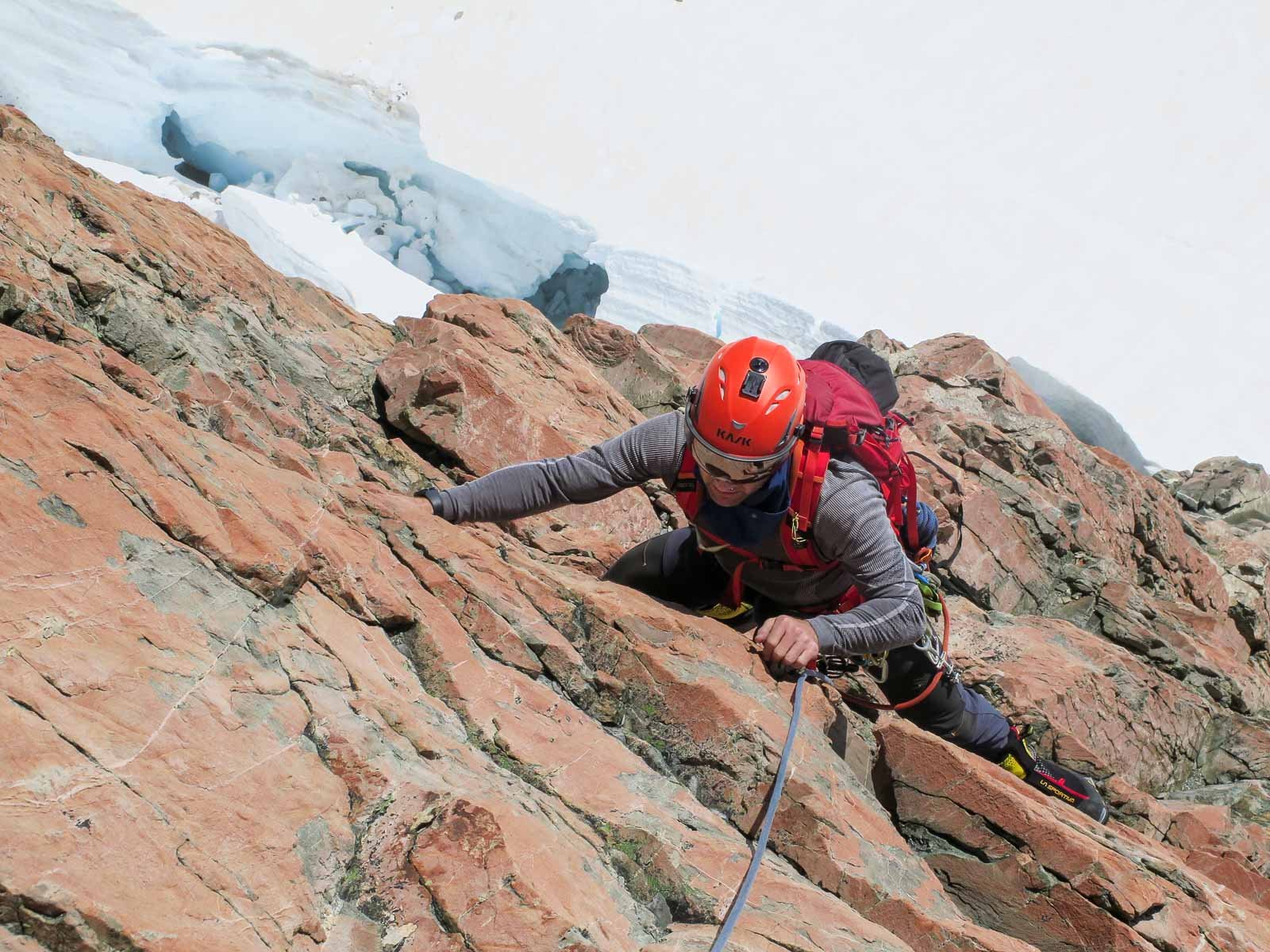
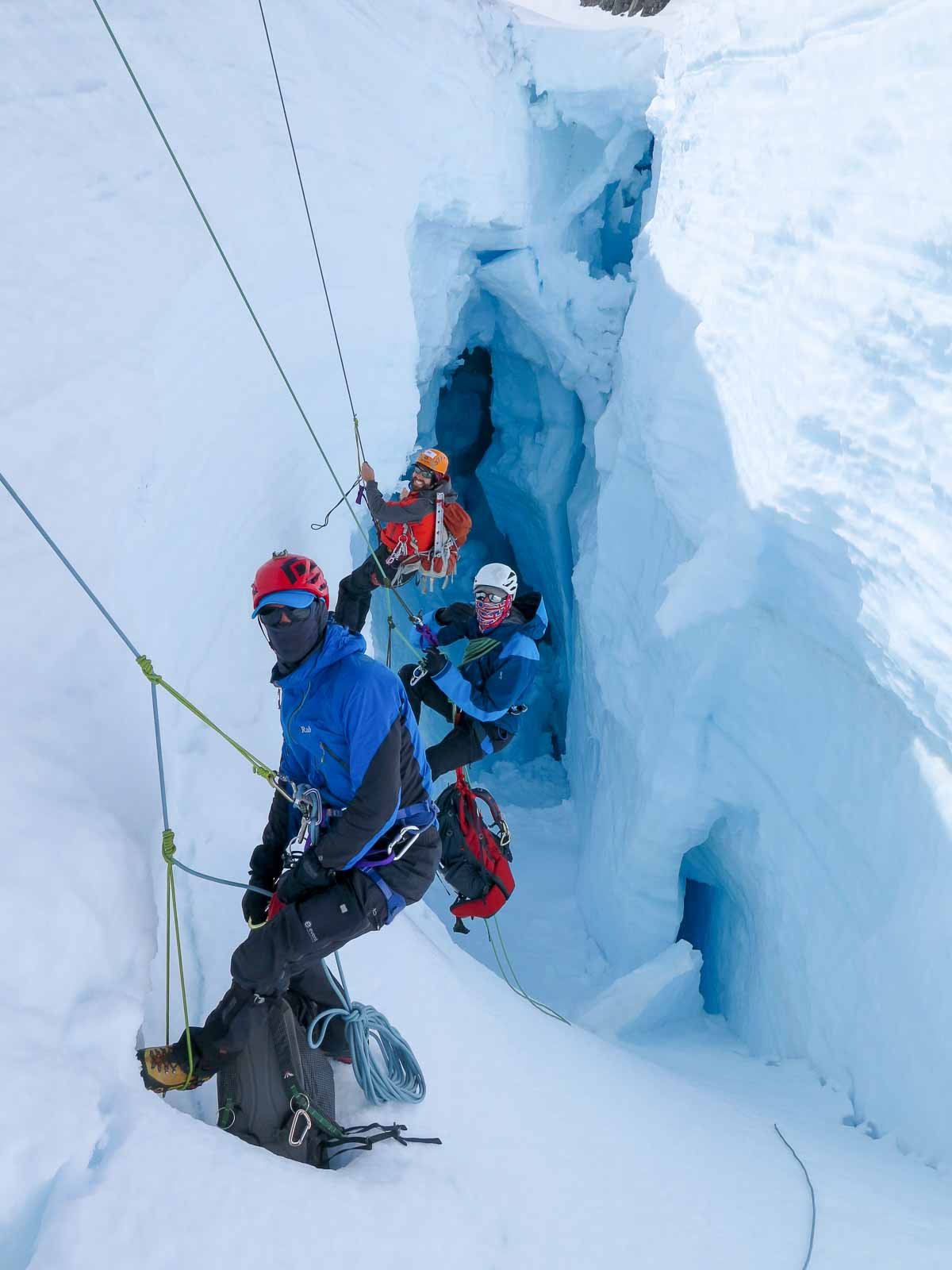
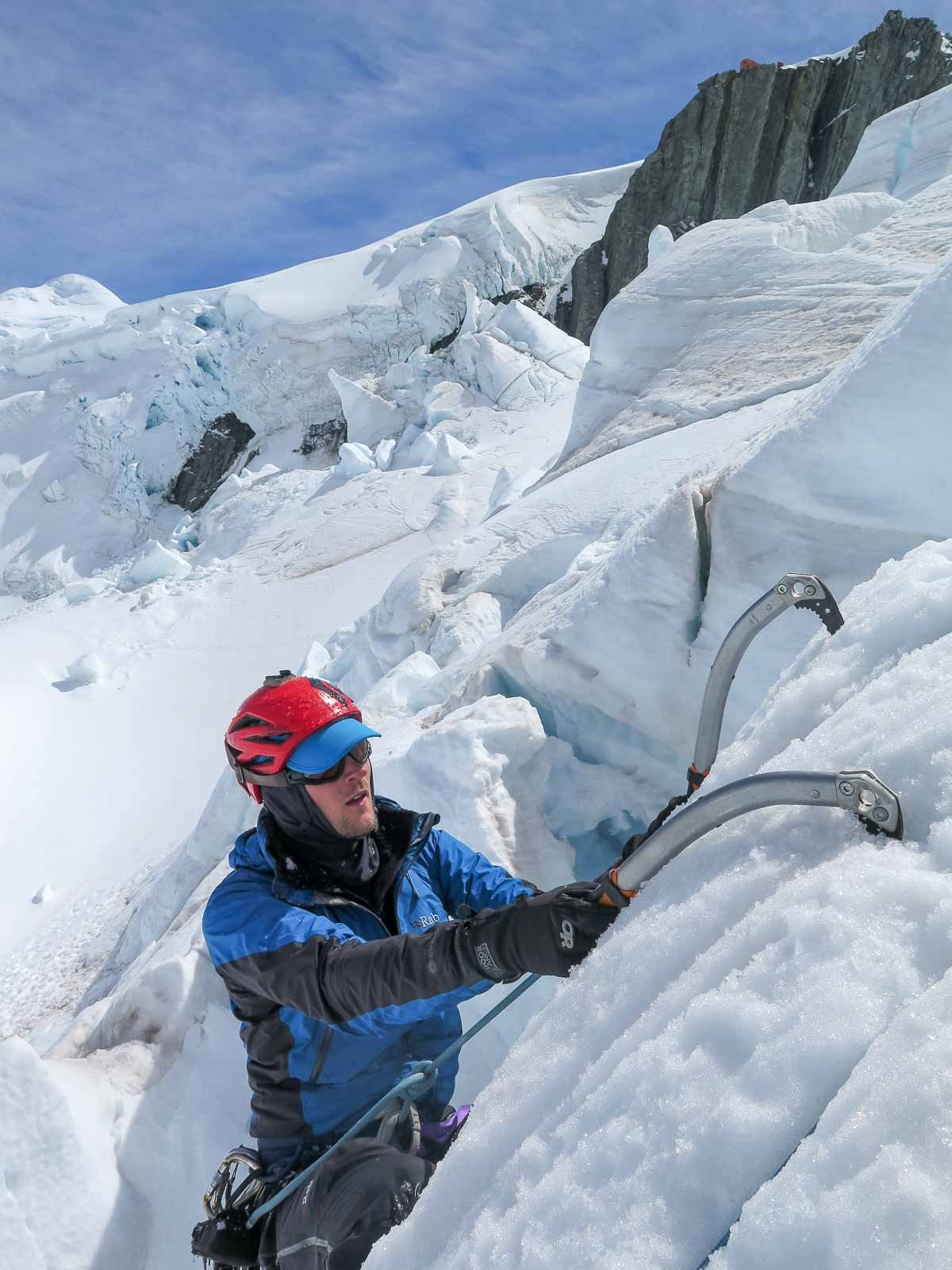
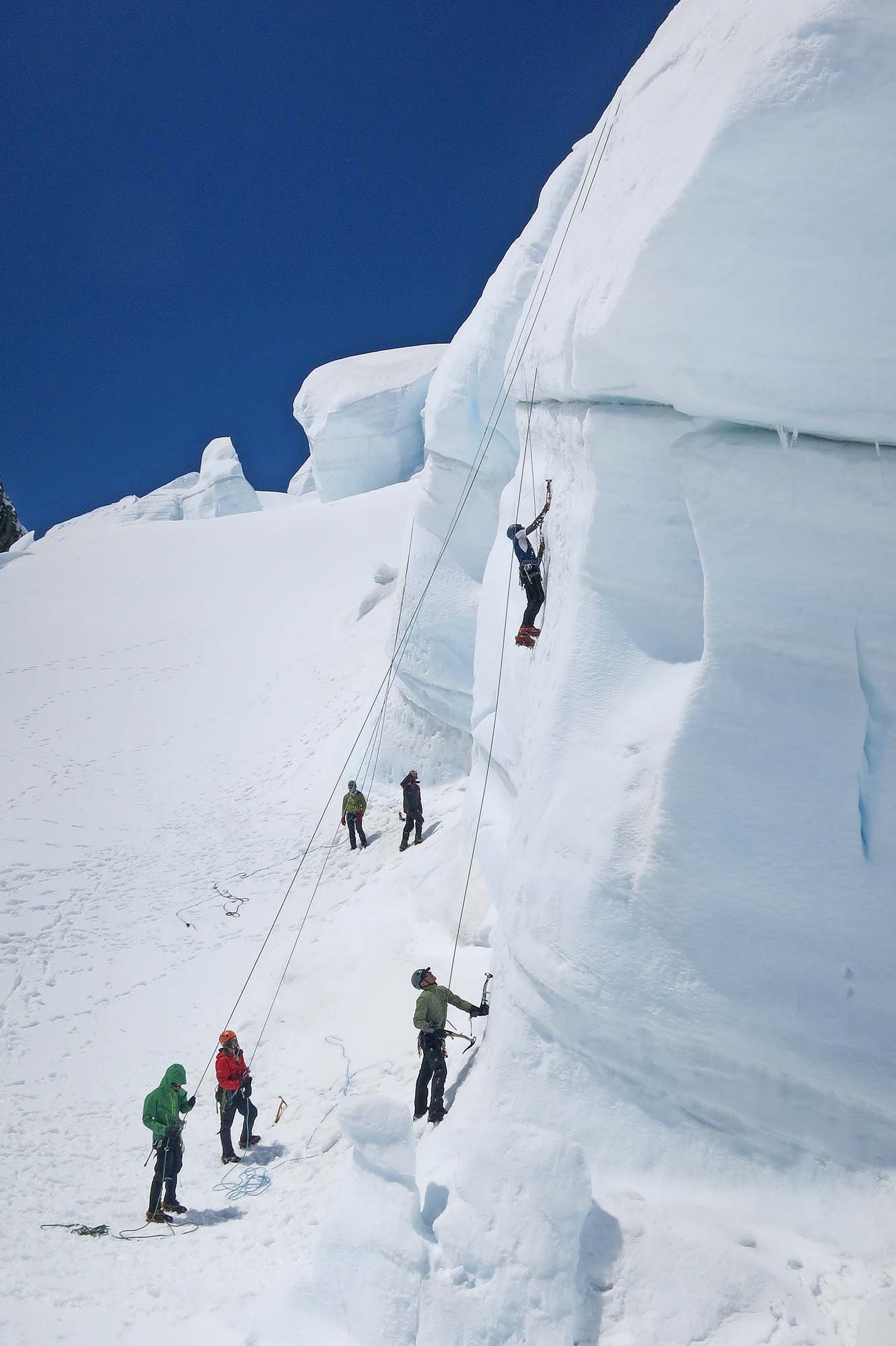
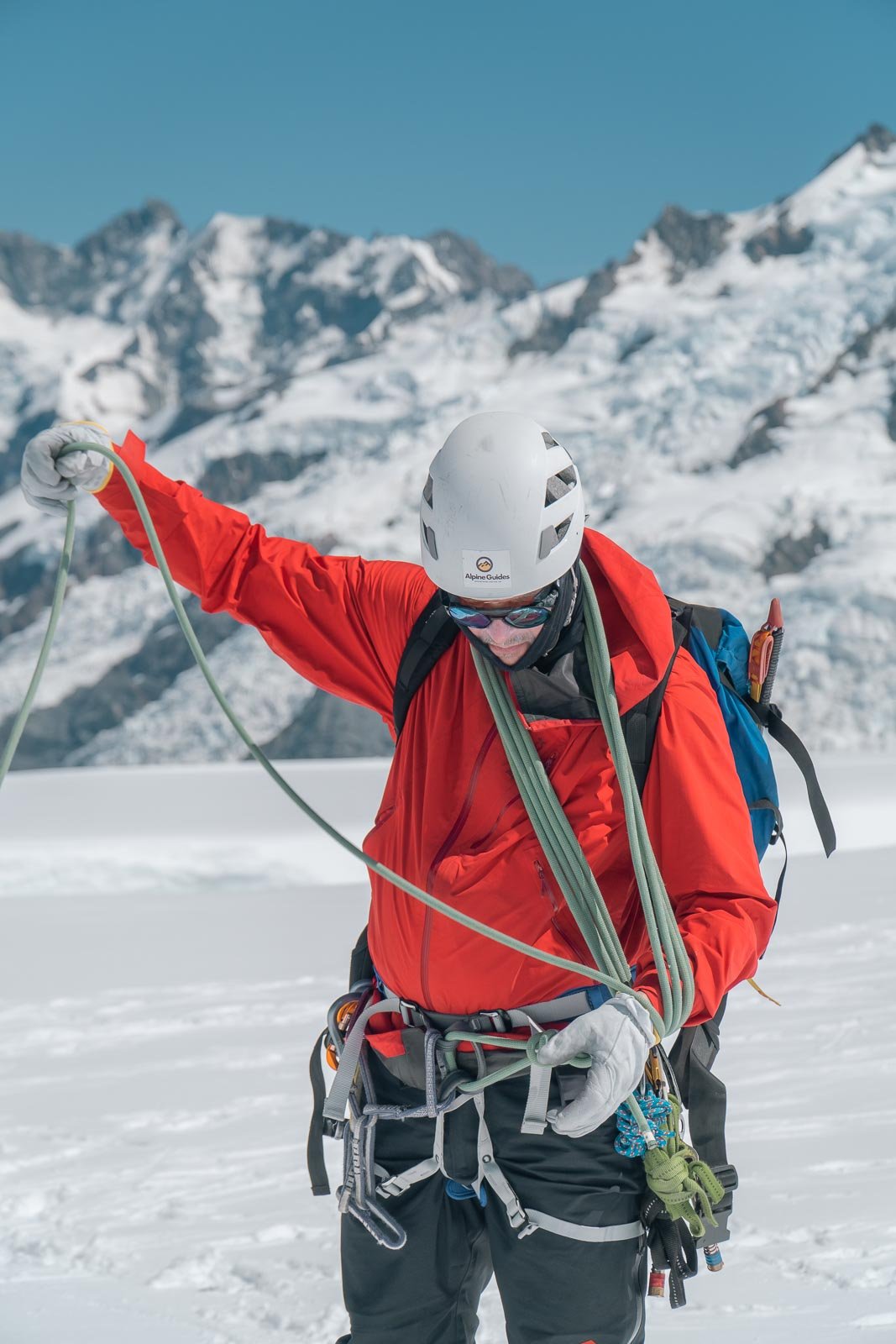
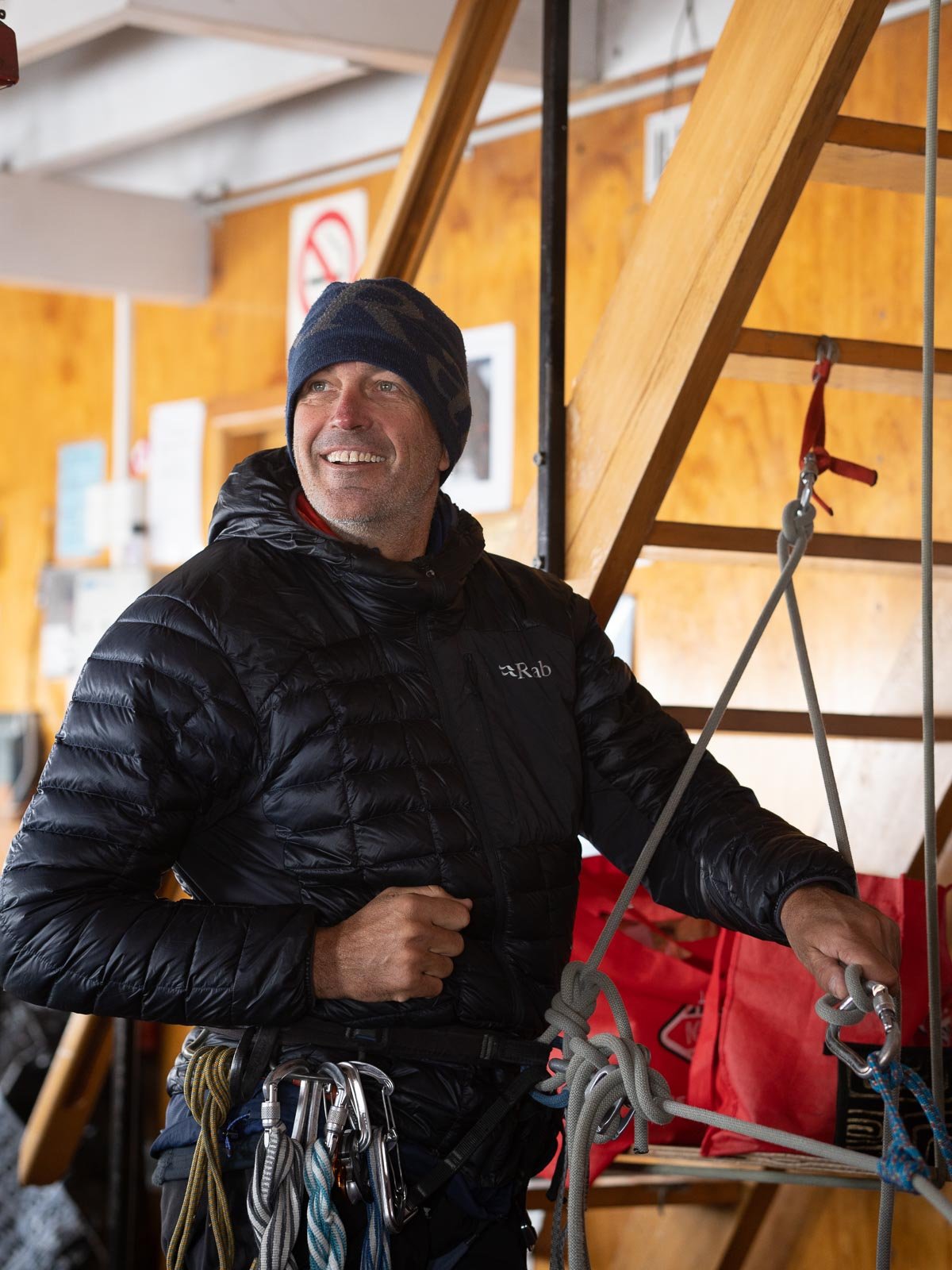
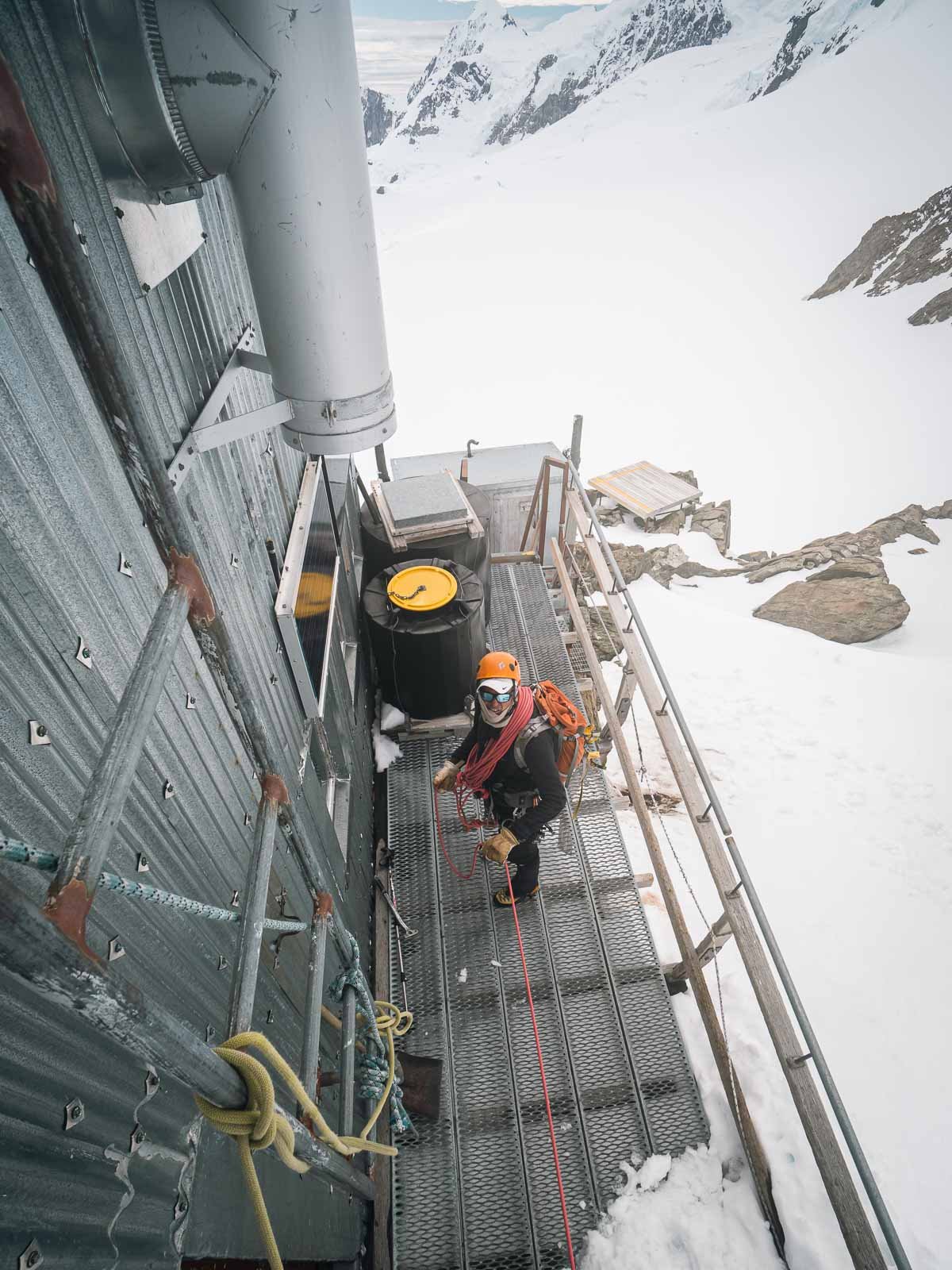
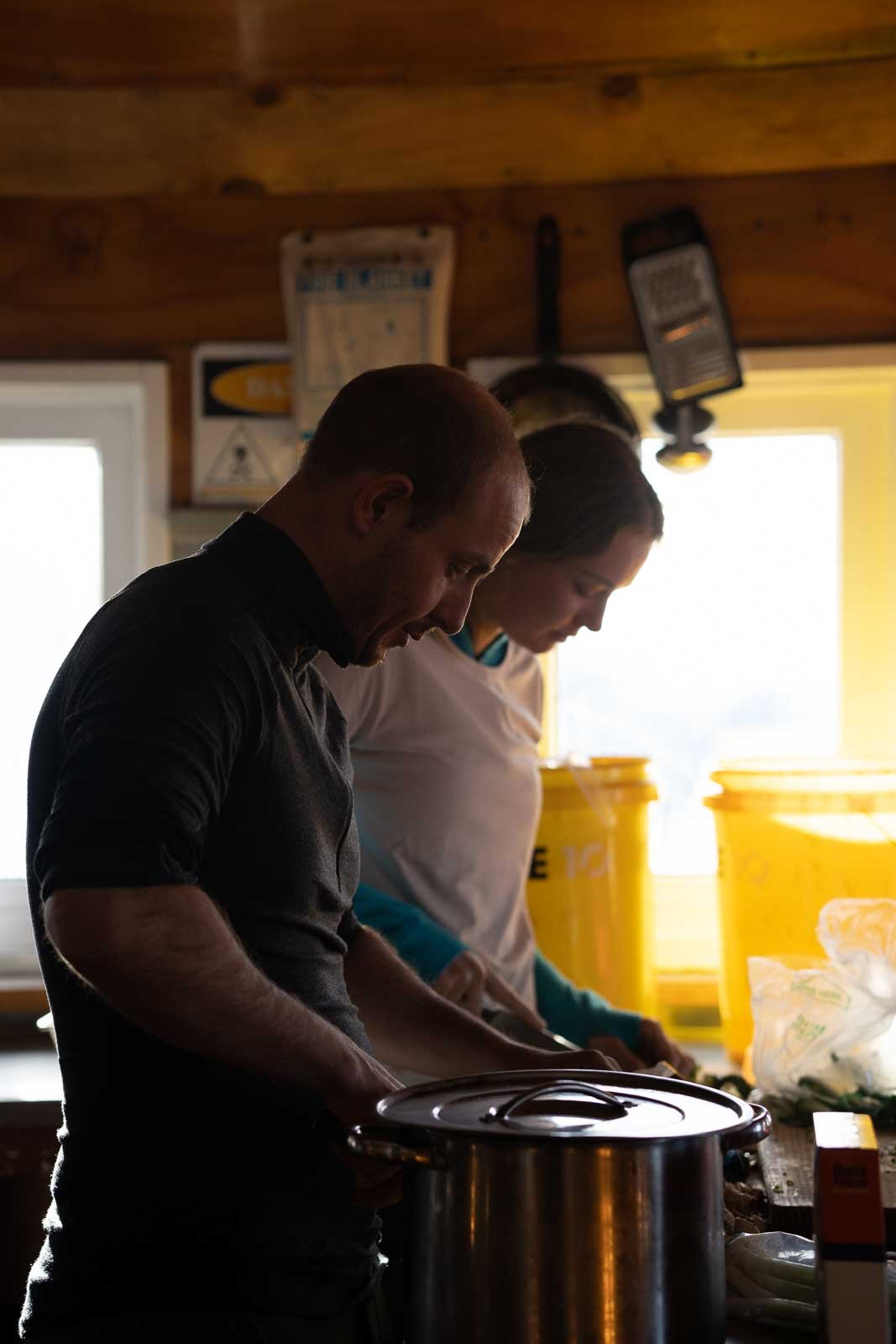
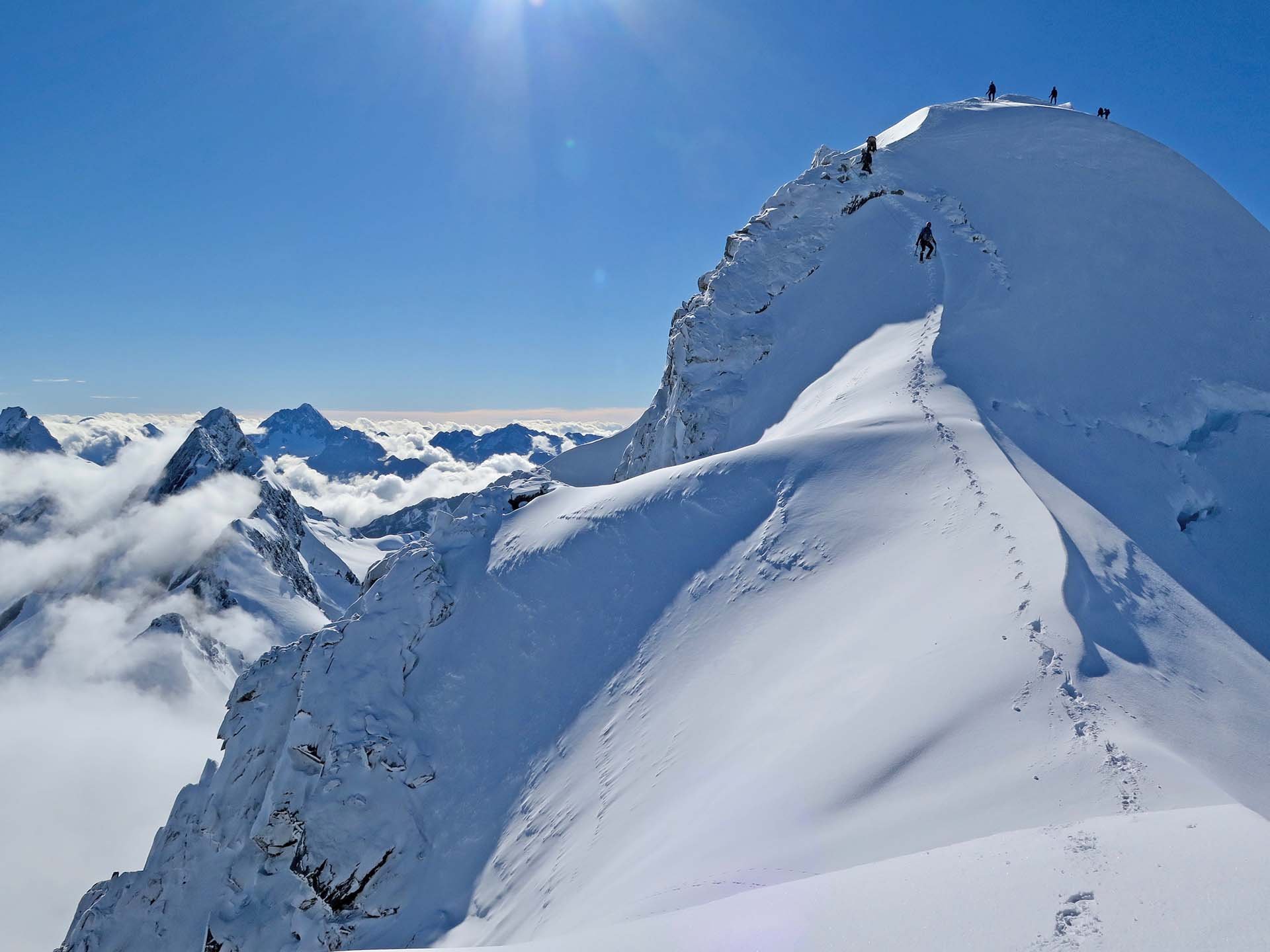
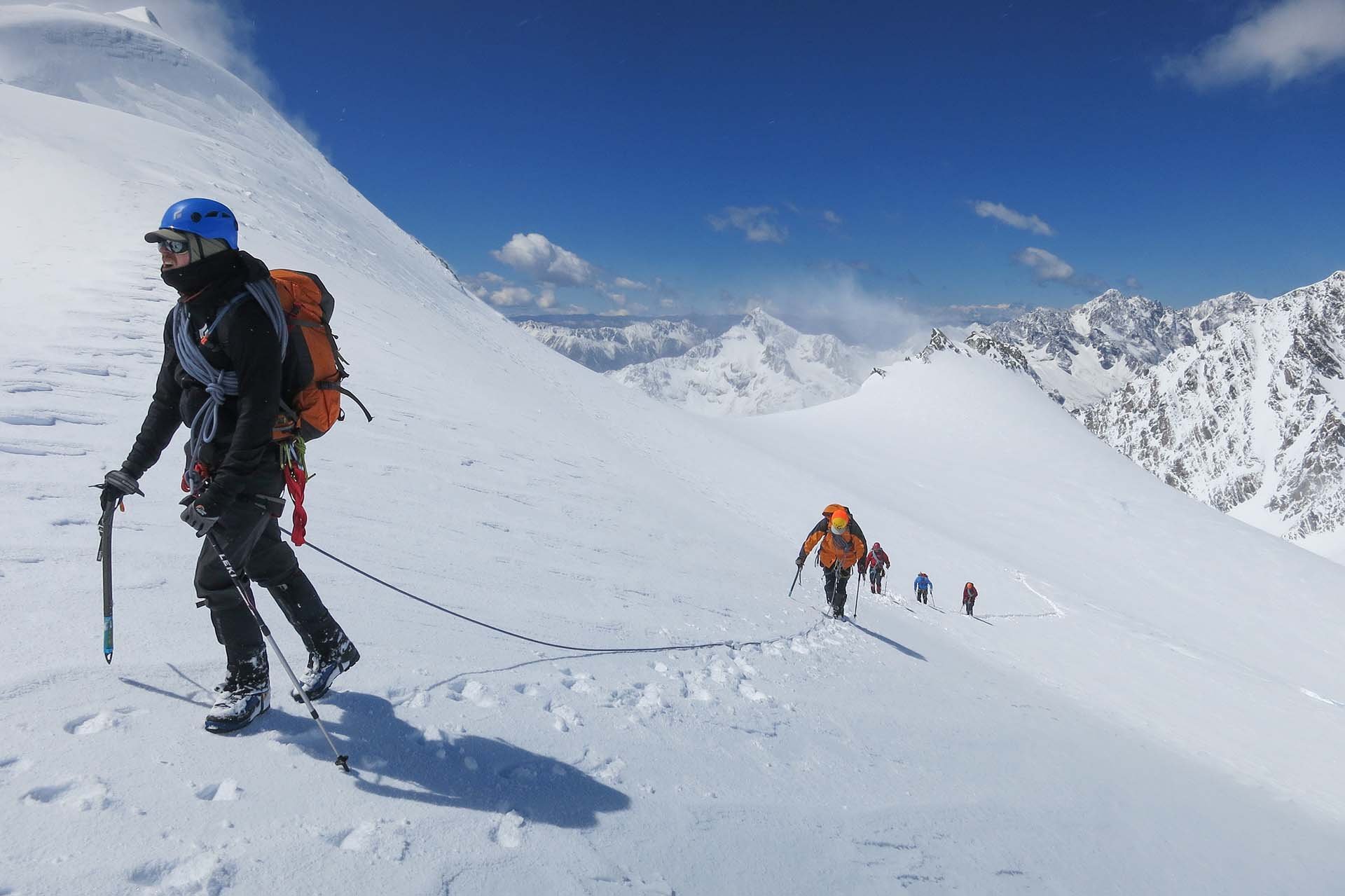
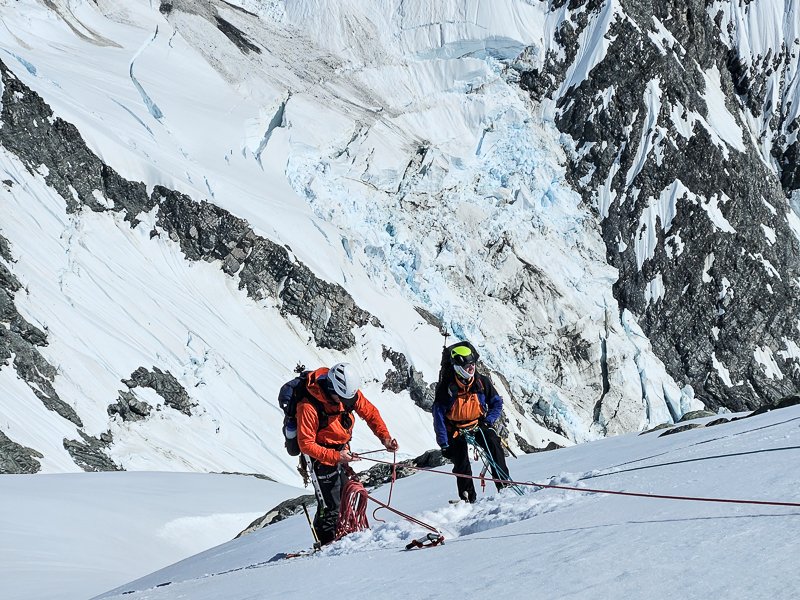
More trip ideas
Himalayan Climbing Course
Technical Mountaineering Course
Mountain Experience Course
